Reasonable Doubt returns for a compelling second season, picking up where we left defense attorney Jax Stewart after a tumultuous first year. The legal drama created by Raamla Mohamed keeps viewers on their toes as Jax attempts to pick up the pieces of her professional and personal life.
Beginning the season in therapy and working on her troubled marriage, Jax aims to apply lessons from past mistakes. But when friend Shanelle calls in panic over killing her abusive husband, Jax finds herself pulled back into the high-stakes world of courtroom battles. Shanelle claims self-defense, though inconsistencies in her story threaten to undermine the case.
Too close to represent Shanelle herself, Jax brings in Corey Cash, an ambitious lawyer with methods differing greatly from her own. Their clashes in approach highlight the human biases that can color even the most clear-cut legal matters.
Balancing this high-profile case while navigating challenges at home and work, Season 2 follows Jax’s journey toward stability. Veteran actors Emayatzy Corinealdi and McKinley Freeman imbue their characters with nuanced vulnerability, keeping viewers invested in hopes of seeing Jax and Lewis find harmony once more.
Across gripping episodes tackling timely issues like domestic violence, Reasonable Doubt proves a riveting blend of compelling courtroom drama and character introspection. Fans anxiously await witnessing how Jax defends both her client and relationships in the face of complex new challenges this season.
Jax Faces a Personal Case
The season premiere wastes no time pulling the viewer right back into Jax’s whirlwind world. We find her focusing on therapy and rebuilding things with Lewis after the chaos of Season 1. But her newly found calm is shattered when Shanelle calls in panic, confessing to killing her abusive husband during a violent altercation.
As expected, Jax rushes to her friend’s aid, easing Shanelle’s worries at the tense crime scene. Wounds on Shanelle’s body confirm she endured immense harm. Though past trauma resurfaces for Jax, she handles the police and gets Shanelle medical help. Initially believing this an open-and-shut self-defense case, we see Jax struggle as Shanelle’s story involves inconsistencies that increase doubt.
The stress takes a toll on Jax mentally and in her relationship with Lewis, who feels sidelined once more by her high-profile work. Realizing how deeply this is affecting her, Jax makes the difficult choice to pass the case, despite her close connection. She picks seasoned lawyer Corey Cash, hoping he can give Shanelle a fair trial while allowing Jax space for recovery.
The episode leaves Shanelle facing serious murder charges in custody. While heartbroken for her friend, Jax finds solace knowing she made the right call to step back. This powerful premiere perfectly sets the tone for what’s sure to be a tense, compelling season exploring how lives unravel in the courtroom.
Complex Characters Evolve
Returning to Reasonable Doubt, we find Jax committed to bettering herself after the chaos of Season 1. Through therapy, she works to process past trauma from Damon while bringing stability to her marriage. But intense personal struggles remain, as coping with Shanelle’s case reignites painful memories.
Shanelle grapples with her own demons too. A victim of domestic violence, she now faces a punishing public as the accused in a highly publicized murder trial. Flashbacks reveal the harrowing escalation of abuse over time—a tragic tale familiar to many women.
Lewis proves his unwavering devotion to Jax through it all. Though he rightfully wants her attentiveness, he supports her unconditionally. Their therapy sessions expose vulnerabilities on both sides, bringing them closer as they rebuild what was broken.
The enigmatic Corey Cash adds layers of complexity. A legal powerhouse, his unorthodox methods clash starkly with Jax’s principles. An air of mystery lingers over his true motives. What lies beneath his suave façade? His confrontations with Jax are electric, and their evolving relationship is one of the season’s intriguing plots.
Through these richly developed characters, Reasonable Doubt continues to examine how past wounds haunt the present. Witnessing their dynamic journeys toward healing or wholeness, viewers become deeply invested in hoping they all find the inner peace so desperately sought.
Complexities of a Personal Case
At the heart of Season 2 lies Shanelle’s complex murder trial. On the surface, facts seem clear: she killed her abusive husband during a violent fight. But inconsistencies in her story and the passionate public spotlight complicate her claim of self-defense.
Shanelle faces charges of first-degree murder. Prosecutors emphasize her waiting two hours to call 911 after the fact and moving Tucker’s body. These questionable decisions cast doubt on whether she acted to protect herself or with more sinister intent.
More deeply, though, the show unpacks the harsh realities of domestic violence. Flashbacks reveal Tucker’s long escalation from emotional manipulation to physical attacks. They resonate with many abused women’s experiences of violence creeping into normalcy over time.
Developments in Tucker’s finances add new layers as Daniel discovers vast offshore funds moved just before his death. Did the money factor into the crime itself? Or does it hold clues to abusive systems of control?
Jax and Corey diverge in their approaches. Jax emphasizes sympathetic angles, showing Shanelle as a long-victimized woman. Corey strategizes manipulating public opinion for acquittal. Their methods collide but offer unique insights into the human biases that can influence even cut-and-dry cases.
Through its sensitively handled material, Reasonable Doubt raises thoughtful questions about how society and law define self-defense when domestic terrorism looms as the established norm. The outcome remains shrouded in reasonable doubt, indeed.
Complex perspectives collide
Reasonable doubt thrives on examining its compelling cases from myriad angles. We view Shanelle’s trial not only through her eyes but also Jax’s, Corey’s, and the prosecution’s too. Each brings unique biases, revealing how subjectivity saturates even cut-and-dry legal matters.
The show blends the drama of courtroom battles with the raw emotions of characters’ personal lives intersecting. Jax fights professional demons while fighting for friends, whose traumatic experiences become real through gut-wrenching flashbacks.
Well-crafted narrative techniques like this immerse us in Shanelle’s escalating past abuse, evoking visceral empathy for her plight. We’re also drawn in by the legal maneuvering itself and intimate marriage counseling scenes with equal interest.
While elements appeal more to soap opera fans and others to legal thriller aficionados, Raamla Mohamed deftly balances both. The result feels truer to real-world issues, where private wounds and public cases are invariably intertwined. Professionalism nearly buckles under humanity’s weight, much like in life.
Through the weaving intricate personal and public spheres, Reasonable Doubt proves a rich viewing experience. It sparks thoughtful debate on topics ranging from the punitive lens turned on abuse survivors to bias’ inescapable role in justice. First and foremost, though, it remains an immensely entertaining and emotionally resonant watch.
Flawless performances breathe life into complex characters
At the heart of Reasonable Doubt’s gripping drama lies Emayatzy Corinealdi’s tour de force as Jax. Viewers feel every facet of her turmoil, conveyed with heartbreaking nuance. McKinley Freeman equally shines in portraying Lewis’ unending devotion challenged by Jax’s demons.
Striding alongside fully realized characters, the supporting cast brings authentic humanity. Shannon Kane evolves Shanelle from a scared victim to a survivor, reclaiming her voice. Victor Rasuk and Melissa Ponzio ooze sympathy and severity as legal rivals fighting for justice.
Under Michael Ratner’s precise direction, tension in the courtroom or couch feels as raw as lived moments. Intimate therapy scenes unfold as clinically as street brawls erupt. Fluid cinematography places us in the muddled spaces these characters navigate.
Production design encapsulates the ambiguity within high-stakes dilemmas. Lavish legal offices and homes hum with activity, with dark prison walls closing in wherever the gaze falls. A rousing hip-hop soundtrack pulses in every heartbeat.
On the back of such flawless performances and skilled craftsmanship, viewers become so wholly submerged in Reasonable Doubt’s world that it leaves an indelible mark long after the final credits roll. Authentic and compelling, it demonstrates what premium television is capable of at its finest.
Defending Complex Issues with Nuance
Across gripping episodes this season, Reasonable Doubt lives up to its name by examining Shanelle’s case from all perspectives. From Corey’s manipulation of the masses to Jax’s grounded empathy, viewers gain layered insights rarely seen on screens.
Standouts like “Primetime” resonate through poignant flashbacks to Tucker and Shanelle’s history. We analyze abuse’s subtle escalation with chilling comprehension. Episode 5 raises intriguing questions around the motives behind Tucker’s offshore finances.
A few surplus subplots feel disjointed, like strained marital drama occasionally undercutting the show’s taut legal fiber. And characters occasionally border on melodrama.
But Raamla Mohamed’s vision predominantly shines through in interweaving personal healing with the harsh realities of the justice system. Jax’s compassion anchors the story, while Corey’s cunning spotlights murky biases that can color “open-and-shut” cases.
Above all, Emayatzy Corinealdi delivers yet another powerhouse performance as a woman navigating trauma’s aftermath with grace. Her brilliance anchors a show unafraid to probe challenging issues with care and nuance.
For any lover of thought-provoking legal or character dramas, Reasonable Doubt stands out as an intelligent, emotional rollercoaster that will linger long after the final scene. Its balanced yet unflinching analysis of domestic violence and the battle for fair trials merits widespread appreciation.
The Review
Reasonable Doubt: Season 2
In conclusion, Reasonable Doubt's intimate character portrayals and exploration of complex issues elevate the legal drama. While not without flaws, Mohamed's vision shines through in addressing weighty topics with care and examining multifaceted truths beyond surface realities. Anchored by a powerhouse performance from Corinealdi that brings authentic humanity to every scene, the series engages through a spirit of empathy, questioning, and care for difficult subjects. For any viewer seeking thoughtful, emotionally resonant television, Reasonable Doubt deserves widespread appreciation.
PROS
- A nuanced examination of complex legal issues and personal trauma
- Deeply developed characters are portrayed with authentic empathy
- Tackles challenging topics like domestic violence with care
- Gripping blended drama of intriguing court cases and relationships
- Anchored by Star Corinealdi's powerful central performance
CONS
- Occasional melodrama in side plots and character moments
- Slow pace in setting up Season 2's new direction initially
- Surplus relationship drama occasionally undercuts legal realism









































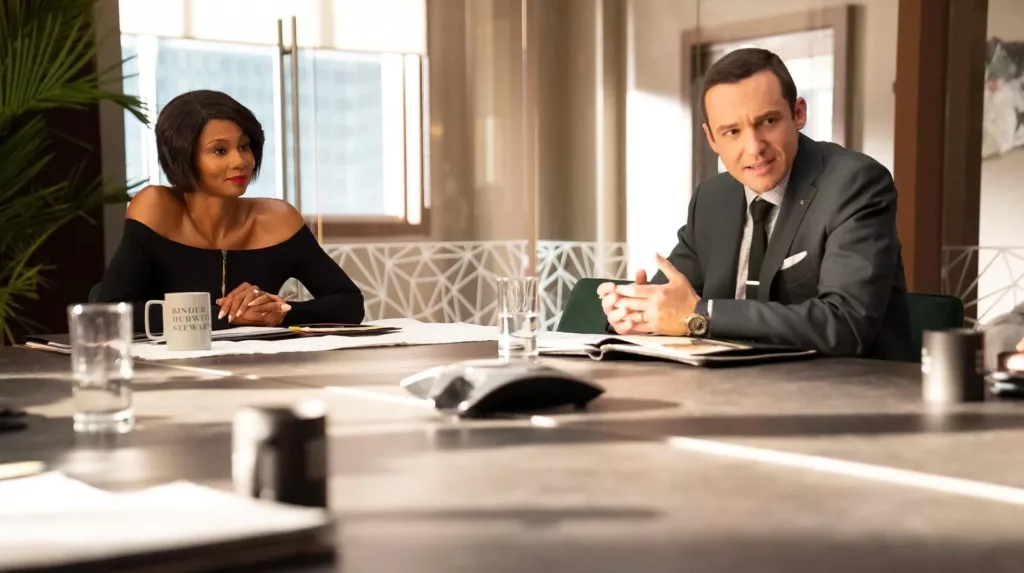
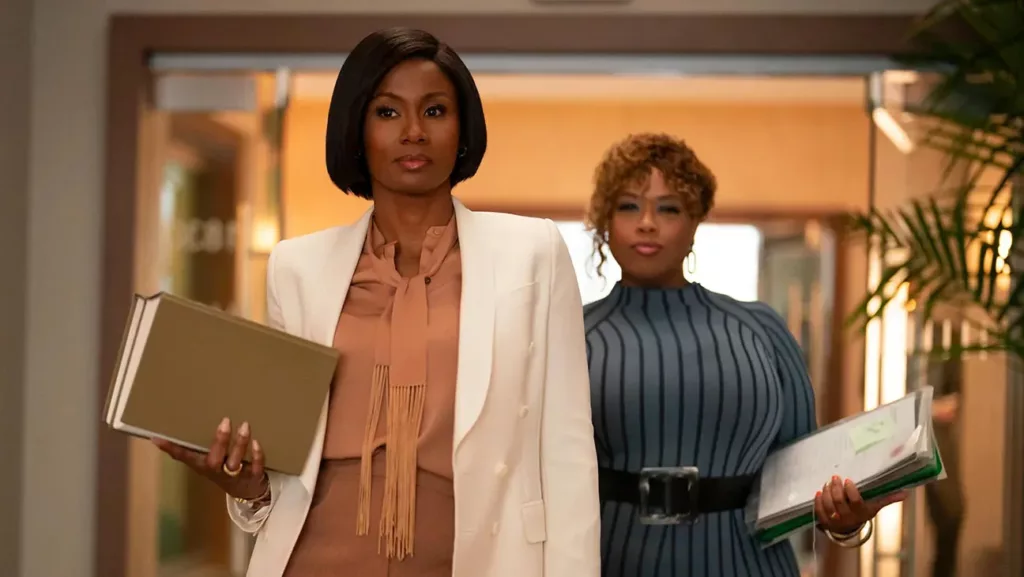
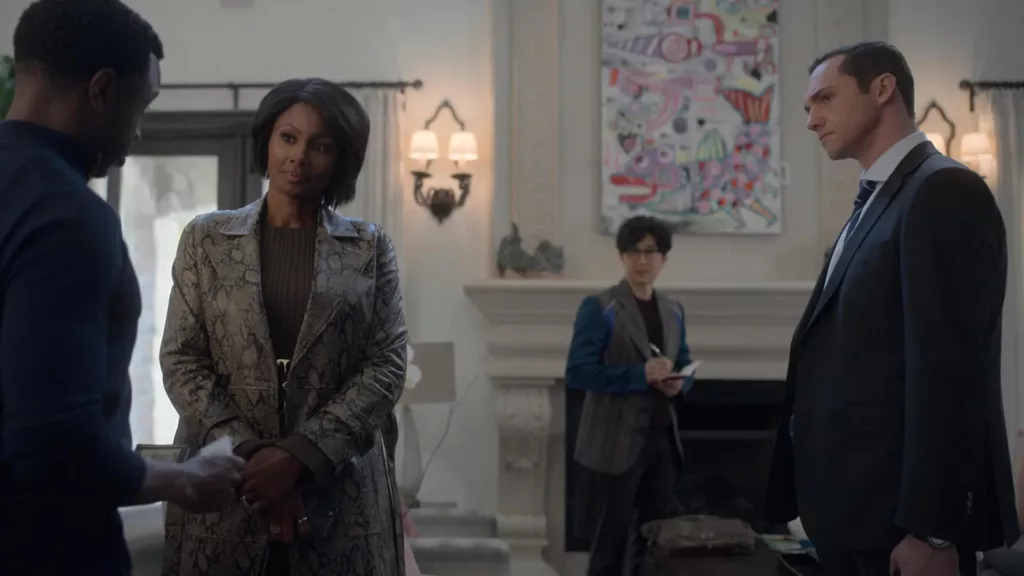
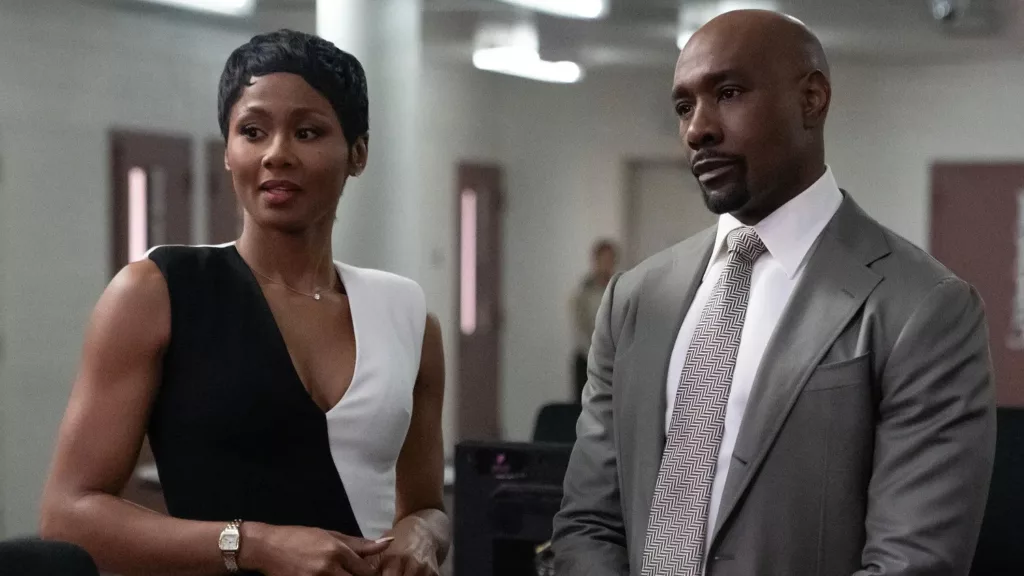
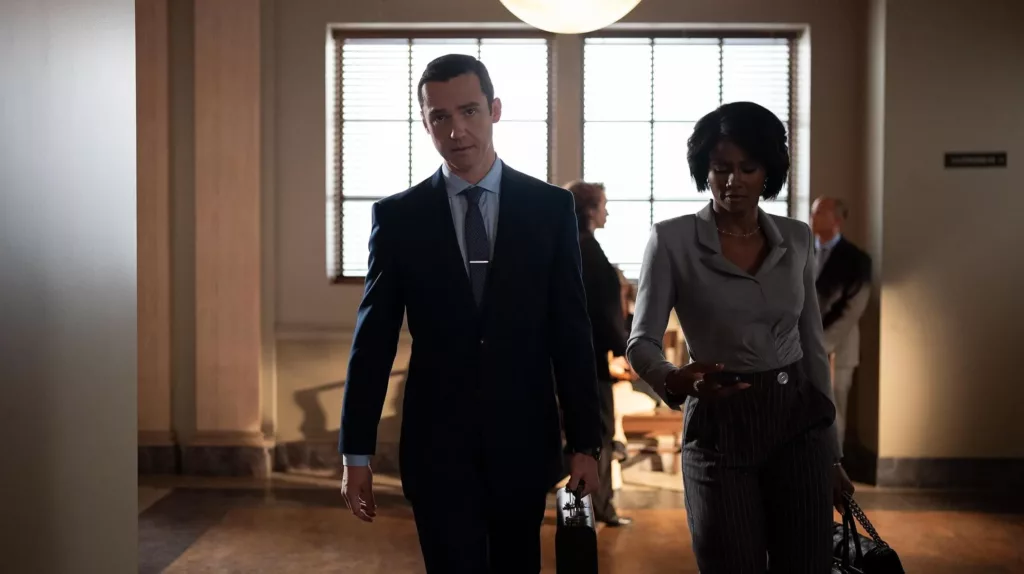








Discussion about this post